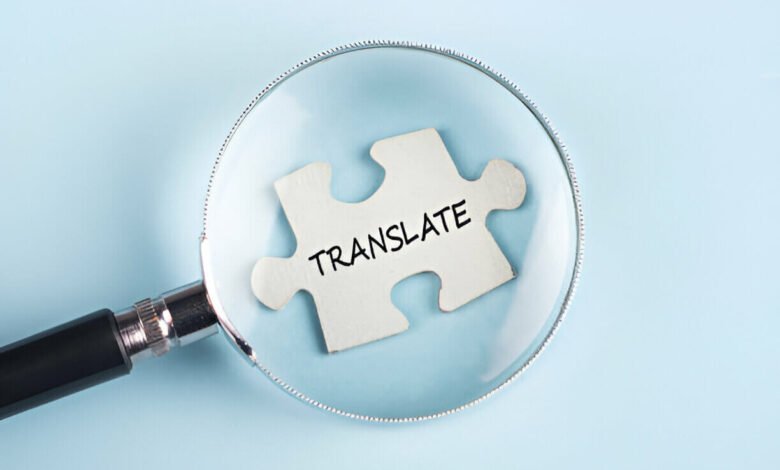Top Challenges in English to Thai Translation Services

International markets today are becoming accessible to businesses globally. Among such expansion processes is communication, specifically translation into a local language of the country or region being entered. For businesses to penetrate the Thai market, an English to Thai translation service proves to be vital in language gap bridging. But then, just like any translation, there are certain challenges involved, which should not be ignored. Let’s get deep into some of the major obstacles businesses face with English to Thai translation services and what can be done to overcome those obstacles.
1. Cultural Nuances and Context
Language is not just about words; it’s also about context. When translating from English to Thai, one must understand cultural nuances and local expressions. For instance, while English has a straightforward translation for phrases like “How are you?”, in Thai, the context changes depending on the relationship and respect level.
Case study: A leading Western coffee house chain once sparked a controversy in Thailand after its marketing campaign had used a catchphrase that offended local culture. The message, designed to convey welcoming customer service, was misinterpreted because of a lack of cultural context in the translation from English to Thai. Such a situation calls for the use of a translation company that has an understanding of the local culture.
See also: Unlocking the Secrets: Revolutionary Anti-Aging Techniques Celebrities Keep Under Wraps
2. Tone and Formality
Formal and informal words or phrases are in Thai, according to the listener. The usage of formal or informal words could easily change the tone of the message. As a case, a superior cannot be called by everyone in Thailand unless some honorifics are added to the title. This will not be used in English. This is where the expertise of a language translation company becomes invaluable.
A leading technology brand learned the hard way when it translated its product manuals without adjusting the tone for the Thai market. The result was awkward phrasing that alienated its audience. A skilled translation service provider would have caught these issues and ensured the tone aligned with local expectations.
3. Lack of Direct Equivalents
The grammar, sentence structure, and vocabulary of Thai and English are significantly different. Sometimes, there are no direct translations for certain words or phrases. This can be challenging in translation. For example, many English idioms do not have a direct equivalent in Thai and may require creative solutions to convey the same meaning.
For example, take a simple, often-used idiomatic expression “break a leg,” meaning in English “good luck.” One doesn’t use “good luck” directly but expresses the concept differently to communicate with Thai readers without using similar English.
4. Technical and Industry-Specific Terminology
Many industries, such as law, medicine, or technology, have their own specialized vocabulary. Translating these terms accurately from English to Thai requires deep knowledge of the industry, not just language skills. Misinterpretations can lead to legal issues or confusion in the healthcare sector.
Case in point: A medical device company working with a language translation company struggled to translate complex medical terminology for the Thai market. By working closely with native experts and the translation team, they ensured the accuracy of their product descriptions, preventing potential misunderstandings in their user manuals.
5. Maintaining SEO and Keywords
SEO is much larger in importance for business sites entering the Thai market, especially those needing digital marketing. The challenge here is ensuring keywords used in the English version of a website or blog post perform well in Thai. This is because some words are related, though not very frequently searched in another language.
For instance, an e-commerce site of a fashion store may focus on keywords such as “best shoes” in the English language. However, “best shoes” in Thai can be a bad translation, hence low search visibility. A language translation company that also has experience with SEO can tailor your content and keywords for better performance in the search engines.
6. Legal and Regulatory Differences
The legal system of Thailand is different from that of the English-speaking world. Some words, especially those used in contracts or official documents, should be scrutinized in order to meet the requirements of the local authorities. A minor mistranslation in a legal document may cause serious problems.
Example: An international company willing to sign a joint venture agreement in Thailand had to return to the drawing board after misinterpreting legal terms of the contract, since the translation of the legal language was bad. Accuracy is needed in the presentation of legal documents, and there is no one better to hire than a company that is able to translate and understand both languages and legal concepts.
Conclusion
Such challenges come with an opportunity for various businesses to translate their English products into Thai by opening up all the opportunities required for businesses targeting expansion into Thailand. Cultural nuances, tone matching, industry terms, and considerations of SEO handling form a delicate handling process. Collaborating with the finest language translation firm can help work these challenges out.
Clear and culturally relevant communication is the key to success in any international market. With these challenges head-on, businesses can develop a stronger relationship with Thai-speaking customers and smoothly enter the market. Whether marketing materials, legal documents, or product descriptions, the right translation service will make all the difference.







